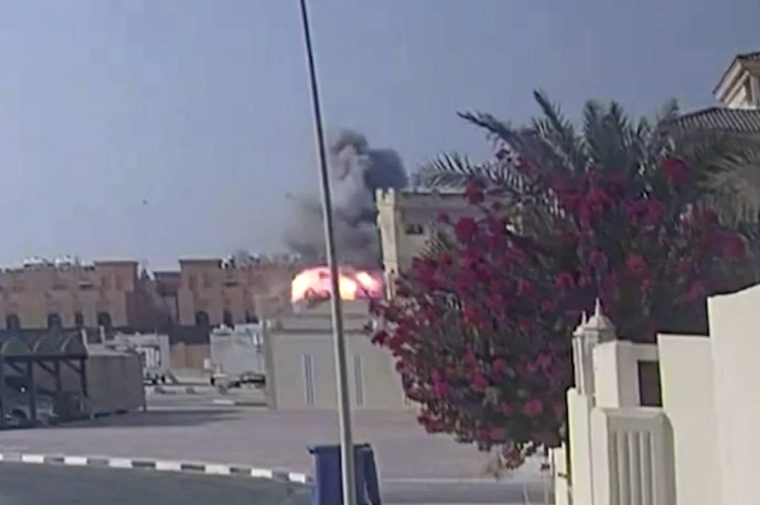The future of Donald Trump’s 20-point peace plan for Gaza hangs in the balance, but there is one aspect of his intervention that all sides can agree on: Qatar is the big winner, whatever happens next.
Key details were notably absent from Trump’s plan, and it would be hard to envisage those being hammered out anywhere other than Doha, given the Qatari capital’s time-honoured tradition of hosting these tough meetings.
This puts Qatar in a powerful position, and there are signs that Trump and others are well aware of this.
For weeks, Qatar has been fuming over Israel’s unprecedented 9 September military strike on Doha. Israeli prime minister Benjamin Netanyahu ordered air strikes on Doha, intended to kill members of a Hamas delegation in the city as they met to discuss ceasefire proposals in Gaza.
The Qataris, who have long brokered conversations between top Hamas officials and Israel, were caught off-guard. The targeted Hamas leaders survived, but six people, including a Qatari security guard, were killed.
The incident put the White House in a deeply uncomfortable position, with Qatar hosting America’s largest military base in the Middle East. President Joe Biden named Qatar a major non-Nato ally back in 2022.
Trump has maintained that he first heard about the air strikes from the Pentagon, not from Israel directly, and his Press Secretary described chaotic scenes at the White House as top officials tried urgently to call Doha and warn their Qatari allies that the Israeli military action was about to unfold.

By the time the literal dust had settled, Qatar’s Emir, Sheikh Tamim bin Hamad Al Thani, was accusing Netanyahu of trying to scupper any future negotiations with Hamas. Weeks later, he told the United Nations General Assembly that Israel’s “treacherous attack… undermines any diplomatic efforts aimed at ending the genocide against the people in Gaza”.
So, when Netanyahu arrived at the White House on Monday, before serious talks about Trump’s peace plan got underway, the President had a job for his Israeli guest. The two men jointly called the Emir and – according to the official White House readout of the conversation – Netanyahu expressed his “deep regret” that Israel’s missile strike against Hamas targets in Qatar unintentionally killed a Qatari serviceman.
More than that, Netanyhau conceded that Israel had violated Qatari sovereignty and affirmed that Israel “will not conduct such an attack again in the future”.
Hours later, it became clear that America was also bearing some of the cost of Israel’s actions.
In an unprecedented move, Trump issued an executive order declaring that any future attack on Qatar would be considered “a threat to the peace and security of the United States”.
Trump said that the White House would take “all lawful and appropriate measures including diplomatic, economic and, if necessary, military” to “restore peace and stability”.
The arrangements, modeled loosely on Nato’s Article 5 mutual defence covenants, has the United States offering Qatar open-ended security protection. The Americans seem to have concluded it is worth paying that price, in order to rekindle even the possibility of Qatari-mediated negotiations between Hamas and Israel.
Trump’s security guarantees also act as an umbrella that – in effect – guarantees Hamas officials in Qatar protection from future Israeli aggression, despite Washington’s official designation of the group’s members as terrorists.
At times, Qatar walks an interesting line. It was the first Arab nation to establish trading relations with Israel, back in 1996, but it is not a signatory to the Abraham Accords that saw the United Arab Emirates and Bahrain normalise ties with Tel Aviv during Trump’s first term.
Throughout Netanyahu’s premiership, Doha has repeatedly ruled out a full normalisation of ties, but Trump is eager to expand the Abraham Accords whenever and wherever possible. He remains hopeful that Saudi Arabia may yet be persuaded to establish full relations, a possibility that was scuppered by the 7 October Hamas assault on Israel two years ago.
When it comes to Gaza, the White House is doubling down, providing security guarantees for Qatar aimed at shoring up its unique position as an honest broker between Hamas and Israel, while also hoping that Trump’s peace plan takes wings as a direct result.
